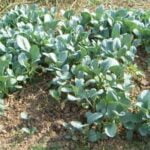Are you wondering, “Is Bonide Captain Jack’s Deadbug safe for vegetable gardens?” Gardeners and farmers alike understand the importance of pest control in vegetable gardens. However, the use of harmful chemicals can have detrimental effects on the environment and human health. In this article, we will explore the safety of Bonide Captain Jack’s Deadbug and its effectiveness in controlling pests in vegetable gardens.
Bonide Captain Jack’s Deadbug is a popular pest control product that is widely used in organic gardening. But what exactly is it, and how does it work? We will delve into the details of this product to understand its mode of action and its impact on vegetable gardens.
The safety of pest control products used in vegetable gardens cannot be overstated. With growing concerns about chemical residues on produce, it is essential to use products that are safe for both plants and consumers. We will discuss the importance of using safe pest control products in vegetable gardens to maintain a healthy and sustainable environment.
What Is Bonide Captain Jack’s Deadbug and How Does It Work?
Bonide Captain Jack’s Deadbug is a natural and safe pest control product that is specifically designed for use in vegetable gardens. It contains the active ingredient Spinosad, which is derived from a naturally occurring soil bacterium. This makes it an environmentally friendly option for controlling a wide range of garden pests such as caterpillars, beetles, thrips, and more. The mode of action of Spinosad involves targeting the nervous system of insects, causing paralysis and ultimately leading to their demise.
One key advantage of using Bonide Captain Jack’s Deadbug in vegetable gardens is that it specifically targets harmful pests while being safe for beneficial insects such as bees, ladybugs, and earthworms. This targeted approach helps to preserve the overall balance of the garden ecosystem without causing harm to non-targeted organisms. In addition to its effectiveness against common garden pests, this product also has a relatively short half-life in the environment, further minimizing any potential negative impact.
When used as directed, Bonide Captain Jack’s Deadbug provides an effective and environmentally conscious solution for pest control in vegetable gardens. Its ability to target specific pests while leaving beneficial insects unharmed makes it an ideal choice for gardeners who are seeking safe and natural alternatives to traditional chemical pesticides.
| Benefit | Detail |
|---|---|
| Active Ingredient | Spinosad |
| Targeted Pest Control | Caterpillars, beetles, thrips, etc. |
| Effect on Beneficial Insects | Safe for bees, ladybugs, earthworms |
| Environmental Impact | Short half-life in the environment |
The Importance of Using Safe Pest Control Products in Vegetable Gardens
When it comes to maintaining a healthy vegetable garden, the use of safe pest control products is essential. Opting for pesticides and insecticides that are specifically designed to target pests while being safe for use around edible plants is crucial for ensuring the health and well-being of both your garden and yourself. Here are some reasons why using safe pest control products in vegetable gardens is of utmost importance:
- Preventing harm to beneficial insects: Safe pest control products are formulated to target harmful pests while minimizing the impact on beneficial insects such as bees and ladybugs, which play a vital role in pollination and natural pest control.
- Protecting human health: By using safe pest control products, you can reduce the risk of exposure to harmful chemicals both during application and when consuming the harvested fruits and vegetables.
- Promoting environmental sustainability: Many safe pest control options are biodegradable and have a lower impact on the environment compared to traditional chemical pesticides, contributing to a more sustainable gardening approach.
By prioritizing the use of safe pest control products in your vegetable garden, you can create a harmonious environment where plants can thrive without unnecessary harm to beneficial creatures or negative effects on human health. When it comes to selecting a product like Bonide Captain Jack’s Deadbug for your garden, it’s important to consider its safety profile and potential benefits for both plants and the surrounding ecosystem.
The Safety of Bonide Captain Jack’s Deadbug for Vegetable Gardens
Bonide Captain Jack’s Deadbug is a popular pest control product that is commonly used in vegetable gardens. But what do the experts say about its safety? According to agricultural experts and entomologists, Bonide Captain Jack’s Deadbug is considered safe for use in vegetable gardens when applied according to the manufacturer’s instructions.
The active ingredient in this product is spinosad, which is a natural substance derived from soil-dwelling bacteria. It effectively targets a wide range of vegetable garden pests such as caterpillars, beetles, thrips, and leafminers without harming beneficial insects like bees and ladybugs.
The Environmental Protection Agency (EPA) has approved spinosad-based products like Bonide Captain Jack’s Deadbug for use in organic gardening. This indicates that the product has met stringent safety and efficacy standards set by the EPA. However, it is important to always read and follow the label instructions when using any pesticide in your vegetable garden to ensure safety for yourself, your plants, and the environment.
In addition to its safety, another advantage of using Bonide Captain Jack’s Deadbug is that it breaks down rapidly in sunlight and soil, reducing the risk of residue on harvested fruits and vegetables. This makes it an ideal choice for gardeners who prioritize food safety and want to minimize their exposure to synthetic chemical pesticides.
Overall, experts agree that when used responsibly and correctly, Bonide Captain Jack’s Deadbug can be a safe and effective solution for pest control in vegetable gardens.
| Bonide Captain Jack’s Deadbug Safety | Expert Endorsement |
|---|---|
| Safe for use in vegetable gardens | Agricultural experts and entomologists |
| Approved by EPA for organic gardening | Environmental Protection Agency (EPA) |
| Rapid breakdown in sunlight and soil |
Steps for Applying Bonide Captain Jack’s Deadbug in Vegetable Gardens
Bonide Captain Jack’s Deadbug is a popular choice for safe pest control in vegetable gardens due to its effectiveness and minimal impact on the environment. When using this product, it is important to follow the proper steps for application to ensure maximum results and safety for your plants.
Here are the steps for applying Bonide Captain Jack’s Deadbug in vegetable gardens:
1. Preparation: Before applying any pest control product, it is important to prepare your garden. Remove any weeds or debris, and make sure the area is clear of any beneficial insects that may be harmed by the treatment.
2. Dilution: Follow the instructions on the label to properly dilute Bonide Captain Jack’s Deadbug with water. Use a sprayer to mix the solution thoroughly before application.
3. Application: It is best to apply Bonide Captain Jack’s Deadbug in the early morning or late afternoon when the temperature is cooler and bees are less active. Spray the solution evenly on both sides of the leaves, as well as around the base of each plant.
4. Repeat: Depending on the severity of your pest problem, you may need to repeat the application of Bonide Captain Jack’s Deadbug. Follow the recommended interval on the product label for reapplication.
By following these steps, you can effectively use Bonide Captain Jack’s Deadbug in your vegetable garden while minimizing any potential risks to your plants and beneficial insects. Always remember to read and follow all instructions and precautions listed on the product label for a safe and successful application.
Understanding the Potential Risks of Using Bonide Captain Jack’s Deadbug in Vegetable Gardens
Bonide Captain Jack’s Deadbug is a popular choice for pest control in vegetable gardens, but like any product, it comes with potential risks that gardeners should be aware of. Understanding these risks is crucial in making an informed decision about using this product in your vegetable garden.
Chemical Exposure
One potential risk of using Bonide Captain Jack’s Deadbug in vegetable gardens is the exposure to chemicals. This product contains Spinosad, which is a natural substance derived from soil bacteria. While considered safe for use around humans and pets, prolonged exposure or ingestion of Spinosad can still pose health risks. It is important to follow the product instructions carefully and avoid direct contact with the skin or eyes when applying it in the garden.
Impact on Beneficial Insects
Another consideration when using Bonide Captain Jack’s Deadbug is its impact on beneficial insects. While it is effective at targeting certain pests, it may also harm beneficial insects such as bees and ladybugs if not applied properly. Gardeners should be cautious when using this product and consider its potential impact on the overall ecosystem of their vegetable garden.
Residue on Edible Plants
Lastly, there is a concern about the residue of Bonide Captain Jack’s Deadbug on edible plants. While Spinosad breaks down quickly in the environment and has a low toxicity to mammals, there is still a possibility of residue being present on fruits and vegetables after application. It is important to wash all produce thoroughly before consumption to minimize any potential health risks associated with residue from the product.
Alternatives to Bonide Captain Jack’s Deadbug for Safe Pest Control in Vegetable Gardens
When it comes to pest control in vegetable gardens, many gardeners are seeking safe and natural alternatives to chemical pesticides. While Bonide Captain Jack’s Deadbug is considered a relatively safe option, some individuals may still have concerns about using this product in their gardens. Fortunately, there are several alternatives to Bonide Captain Jack’s Deadbug that can effectively control pests while being gentle on the environment and beneficial insects.
Neem Oil
One popular alternative to Bonide Captain Jack’s Deadbug is neem oil, which is derived from the seeds of the neem tree. Neem oil works by disrupting the feeding and reproductive behaviors of pests without harming beneficial insects such as ladybugs and bees. It also has fungicidal properties, making it a versatile option for controlling both insect pests and plant diseases in vegetable gardens.
Diatomaceous Earth
Diatomaceous earth is another natural pest control option that is safe for use in vegetable gardens. This powdery substance is made from fossilized diatoms and works by physically damaging the exoskeletons of insects, ultimately leading to their dehydration and death. Diatomaceous earth can be sprinkled around plants or used as a barrier to protect against crawling pests such as slugs, snails, and ants.
Insecticidal Soap
Insecticidal soap is a gentle yet effective alternative to chemical pesticides when it comes to controlling soft-bodied insects such as aphids, spider mites, and whiteflies. Made from potassium salts of fatty acids, insecticidal soap works by suffocating these pests upon contact while leaving minimal impact on other organisms in the garden. It can be sprayed directly onto infested plants and is biodegradable, making it an environmentally friendly option for pest control.
By exploring these natural alternatives to Bonide Captain Jack’s Deadbug, gardeners can make informed decisions about how best to protect their vegetable gardens from pests while prioritizing environmental safety and sustainability. Each of these alternatives offers unique benefits for pest management and can be integrated into an overall strategy for maintaining healthy and thriving crops without compromising the well-being of beneficial insects or the broader ecosystem.
Conclusion
In conclusion, when it comes to pest control in your vegetable garden, it is crucial to make an informed decision that prioritizes the safety of your plants, yourself, and the environment. Bonide Captain Jack’s Deadbug offers a safe and effective solution for controlling pests in vegetable gardens. This product contains natural ingredients such as Spinosad, making it a preferred choice for many gardeners who want to avoid the use of harsh chemicals.
By understanding how Bonide Captain Jack’s Deadbug works and following the recommended application steps, you can ensure that your vegetable garden remains healthy and free from harmful pests. Additionally, considering the opinions of experts who have assessed the safety of this product for vegetable gardens provides valuable insight into its effectiveness and low risk.
While Bonide Captain Jack’s Deadbug may be a suitable option for many gardeners, it is important to also be aware of potential risks and consider alternative methods for pest control. By weighing the benefits and drawbacks of using this product, you can make a well-informed decision that aligns with your values and gardening practices. Ultimately, with proper research and careful consideration, you can maintain a thriving vegetable garden while prioritizing safety and sustainability.
Frequently Asked Questions
Is Captain Jack’s Deadbug Safe?
Yes, Captain Jack’s Deadbug Brew is considered safe for use in the garden. It is an organic insecticide that is approved for use in organic gardening. As with any pesticide, it should be used according to the instructions on the label to ensure safety.
Does Captain Jack’s Dead Bug Brew Work on Aphids?
Captain Jack’s Dead Bug Brew has been found to be effective against aphids. The product contains spinosad, which works by affecting the nervous system of insects, including aphids. It is important to apply the product directly to the affected plants and follow the recommended application rates for best results.
Is Captain Jack’s Deadbug Safe for Bees?
When used according to the label instructions, Captain Jack’s Deadbug Brew is safe for bees. However, it is always best to apply any pesticide during early morning or late evening when bees are less active to minimize their exposure. Additionally, avoiding direct application to blooming plants can help further protect bees and other pollinators from potential harm.

If you’re looking to get into vegetable gardening, or are just looking for some tips on how to make your current garden better, then you’ve come to the right place! My name is Ethel and I have been gardening for years. In this blog, I’m going to share with you some of my best tips on how to create a successful vegetable garden.





